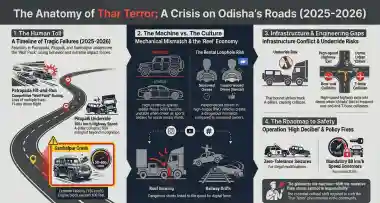

Tehran: Iran's Parliament has given approval for closing the Strait of Hormuz, the world's most critical oil chokepoint, following US military strikes on three Iranian military sites on Sunday. However, the final decision rests with Iran's Supreme National Security Council, according to Iran's Press TV reports from Sunday, June 22.
The parliamentary approval marks a significant escalation in US-Iran tensions and has sent shockwaves through global energy markets. The move comes as retaliation appears imminent following American military action against Iranian installations, fundamentally shifting expert assessments about Iran's willingness to block this vital waterway.
When questioned by reporters about the Strait of Hormuz, Iran's Foreign Minister Seyed Abbas Aragchi remained deliberately ambiguous, stating simply that "a variety of options are available with Iran." This cryptic response has amplified concerns among international observers about Iran's next moves.
The parliamentary approval represents Iran's most concrete step yet toward potentially implementing a blockade that experts had previously dismissed as unlikely. America's weekend strikes appear to have changed Tehran's calculus, bringing what was once considered an empty threat into the realm of serious possibility.
Recognizing the global implications, US Secretary of State Marco Rubio has called on China to intervene diplomatically. Speaking on Fox News, Rubio emphasized China's vulnerability: "I encourage the Chinese government in Beijing to call them about that, because they heavily depend on the Straits of Hormuz for their oil. If they do that, it will be another terrible mistake. It's an economic suicide for them if they do it."
Rubio's appeal highlights the complex web of international dependencies surrounding the strait, where even Iran's closest allies would suffer significant economic consequences from any disruption.
The Strait of Hormuz serves as the narrow gateway connecting the Persian Gulf to the Gulf of Oman, which flows into the Arabian Sea. This strategic waterway provides the only maritime access route for major oil-producing nations including Iran, Saudi Arabia, and the UAE to reach global markets.
Located within the territorial waters of Iran and Oman, the strait handles an enormous volume of global energy trade. The waterway's significance cannot be overstated - it represents the jugular vein of international oil commerce, making any threat to its operations a matter of global concern.
Despite numerous regional conflicts and escalating tensions over decades, Iran has never actually blocked the Strait of Hormuz. Even during the brutal Iran-Iraq War of the 1980s, when both nations attacked ships passing through the strait, neither country completely stopped maritime traffic.
Iran's methods of potential disruption could include laying naval mines, launching missile and bomb attacks on vessels, detaining ships, or conducting sophisticated cyberattacks on maritime systems. However, historical precedent suggests Tehran has consistently pulled back from complete closure due to the severe consequences for its own interests.
Iran's dependence on the strait for its own trade creates a powerful deterrent against closure. The country relies heavily on maritime routes for both importing essential goods and exporting oil, making any blockade economically self-destructive.
Additionally, Iran's improving relationships with regional neighbors, particularly the influential Saudi Arabia, would be jeopardized by actions that disrupt regional commerce. Tehran has invested considerable diplomatic capital in normalizing ties with Gulf states and would risk undoing years of progress.
Perhaps most crucially, Western sanctions have left Iran with limited oil customers, making China its primary buyer at heavily discounted rates. Disrupting the strait would directly harm China's energy security, potentially alienating Iran's most important economic partner.
According to Energy Information Administration estimates, 84% of crude oil and condensate, along with 83% of liquefied natural gas moving through the Strait of Hormuz, reached Asian markets in 2024. China, India, Japan, and South Korea emerged as the top destinations, collectively accounting for 69% of all Hormuz crude oil and condensate flows.
India would face significant challenges from any closure, though the country maintains diversified supply sources including Russia, the United States, Africa, and Latin America. While India could potentially secure alternative supplies, the primary concern centers on dramatic price fluctuations that would ripple through the economy.
The interconnected nature of global oil markets means that even countries with diverse supply sources would experience price volatility. China's heavy reliance on Iranian oil through the strait could force Beijing to seek alternative suppliers during any extended disruption, further complicating global pricing dynamics and supply chains.
Any sustained disruption to Strait of Hormuz traffic would trigger immediate oil price spikes worldwide, potentially causing inflationary pressures across multiple economies. The threat alone has already influenced shipping patterns and insurance costs, with maritime companies reassessing routes and coverage.
The current situation represents a critical test of international diplomatic coordination, as major powers must balance their strategic interests with the need to maintain global energy security. While Iran's parliamentary approval adds credibility to closure threats, the economic realities and historical precedent suggest that complete blockade remains unlikely despite the escalating rhetoric.